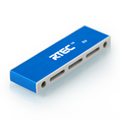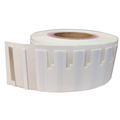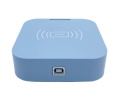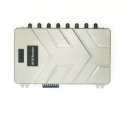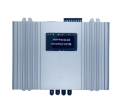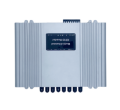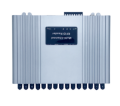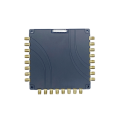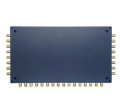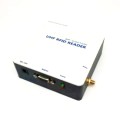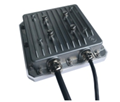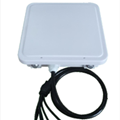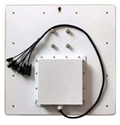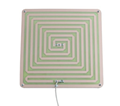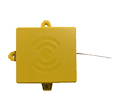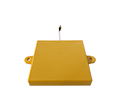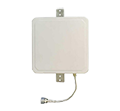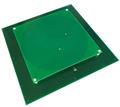RFID drill pipe tag for traceability management
发布时间:2013-03-26 20:46:31
Drilling pipe is one of the most important assets of petroleum exploitation enterprises, the average cost of purchasing new drilling pipe accounts for about 20-25% of the total capital investment, so scientific and effective asset management of drilling pipe has very important economic value.
The service life of drill pipe varies from 2 to 6 years, depending on the quality of manufacture, environment and maintenance. In order to keep the drill pipe in good working condition, meet the demand of the use of drilling, to drill pipe inspection maintenance regularly, and to have to the service life of drill pipe scrap processing, you also need to spend a lot of money to buy a new drill pipe (2018, Russia has certain drilling operator to purchase 63700 tons of steel pipe, and scrap quantity of 30000 tons). If the life of drill pipe can not be managed scientifically and effectively, it may cause the drill pipe to be scrapped in advance, or the stock of drill pipe is insufficient, which will seriously affect the management quality of enterprises.
Although oil mining enterprises attach great importance to the maintenance and inventory of drill pipe, due to the lack of scientific and effective information means, in practical operation, it is difficult to record the maintenance status, maintenance time, well running time and working time of each drill pipe separately and accurately, and report and summarize the information accurately and timely. But each drilling pipe group by manual rough record, and then reported to the company by manual summary statistics. Not only time consuming, but also poor data authenticity and reliability. More can not do targeted scrap, in case of the whole group is usually scrapped, a great waste.
When the drill pipe is worn to a certain extent, it is easy to leak and cause the drill pipe to be scrapped. In order to prevent the occurrence of punctured leakage, the drill pipe is usually pulled out of drilling regularly at present, and the flaw detection equipment is used for detection. In this way, problems can only be found when the drill pipe has formed cracks, and hidden dangers can not be found in advance. Therefore, there are many cases of leakage during the interval of testing.
Since the wear degree of drill pipe at the same quality level under normal working conditions is proportional to the working time, it is possible to prevent the leakage of drill pipe by recording the working time of drill pipe. Combined with the big data algorithm, it can even calculate the average working time of each supplier's drill pipe about to leak through the accumulation of data. The powerful data support is not only conducive to the maintenance of drill pipe, but also easy to uate and control the supplier's product quality.
Advantages and value of using RFID for drillpipe management
1. By controlling reliable information about the current condition and remaining life of the drill pipe, the drill pipe can be scrapped after reaching the maximum allowable wear level, rather than being scrapped in advance according to the general data of the unit. The service life of drill pipe can be increased by at least 20%.
2. By using RFID to accurately manage each drill pipe individually, it is possible to combine drill pipes from different pipelines with each other or with other new drill pipes, thereby reducing the number of drill pipes in a set to the actual number needed to drill the well. In the past, at least 5% of the spare material was reserved for a string assembly.
3. Based on the real and accurate service life of each drill pipe, it can accurately select the drill pipe that really needs to be repaired, so that the flaw detection and drill pipe repair are more planned and targeted, and the most damaged parts that cannot be repaired are discarded in advance, rather than the whole set of drill pipe. Comprehensive saving maintenance and scrap cost of more than 25%.
4. Reduce the risk of drill pipe damage due to erosion or failure by 30%. The system will provide the ability to sort the drill pipe prior to RIH operations or suggest changes in its position in the connection, based on its current service life.
5. Supplier information for each drill pipe will be stored in the information system and is strictly encrypted to prevent leakage. Through this data, the procurement personnel can quickly count the supply and operation performance of suppliers, which is convenient for screening and eliminating suppliers that do not meet the requirements, and preventing the performance fraud of suppliers.
6. It can master the maximum service life of drill pipe produced by different manufacturers under the same working condition, and uate and examine suppliers based on this data, and constantly improve the supply quality, so as to increase the average maximum service life of drill pipe by more than 10%. Purchasing can also be calculated by the price of the product life of the ratio to select the most cost-effective supplier.
The Promass Micron, developed by Mianyang Ruitai Intelligent Technology Co., LTD., is a circular embedded UHF RFID high temperature resistant tag designed and customized for oil drill pipe. It is specially designed to be embedded into the drill pipe joint hole to track each individual drill pipe. Rfid technology is the key technology to realize the tracking and interaction of various pipeline data, which was difficult in the past. Before adopting RFID technology, oil drilling companies often faced several problems. They don't know exactly where the drill is, how it will be used, or how long it will last. During drilling, the drill pipe used to build the drilling device is stored on the drilling tower support or pipe yard support. To find the right drill string member in the structure, workers often need to climb on the drill pipe rack and measure the drill pipe with a tape measure. The worker then writes the specifications on a piece of paper and manually enters the data into a computer. In some cases, they can also paint the drill pipe to identify numbers, but this has limited effect. An incomplete drillpipe mark will have no effect if the drillpipe mark is in the wrong direction on the support, is covered with dirt or is worn away.
The ability to track drillpipe joints using RFID technology opens up new possibilities for improved documentation and process efficiency, resulting in cost savings and reduced risk. Weather and operating conditions make China's oilfields one of the most challenging asset management environments on earth. Drill pipes are exposed to high temperatures, extreme pressure and vibration, and chemical corrosion during operation in harsh environments.
Plumber labels record important information such as identification number, steel number, size, weight, production information, last use, and asset maintenance records. The stored information is transmitted to RFID's tracking system. By using handheld RFID readers, workers can obtain critical information before and after all drill pipe scans, and gain real-time visibility when assets need cleaning and maintenance, as well as when they need to be scrapped.
This greatly reduces the risk of leaks and ruptures that could lead to test failures. By collecting raw data in a timely manner, management can use field data to make fast and accurate decisions.




